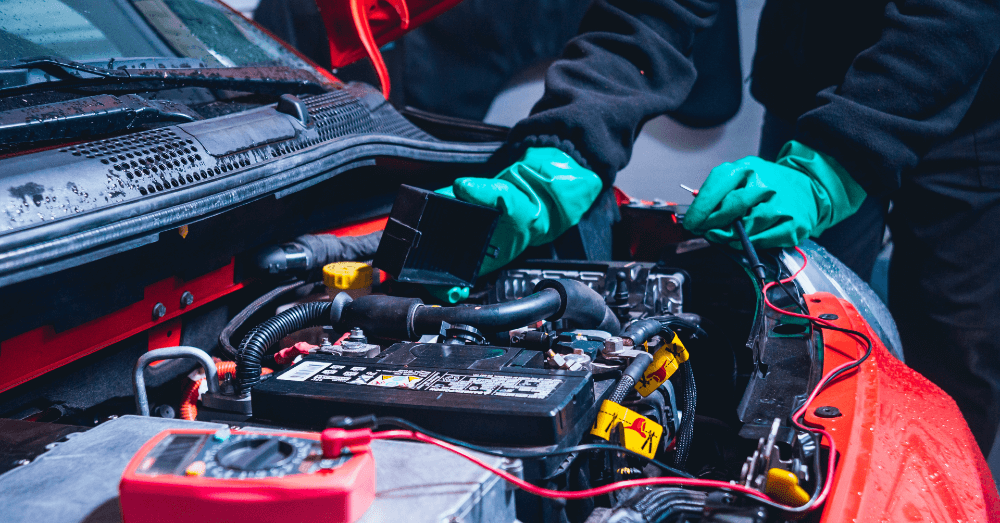As electric vehicles grow in popularity, drivers are learning more about their pros and cons and, more importantly, how to maintain them.
Servicing an electric vehicle is much different than servicing a gas vehicle. Many EV drivers rave about how much cheaper they are to maintain, but what do you really need to know?
Service IS Necessary
While some EV drivers think they don’t need to service their electric vehicles for years or thousands of miles, this is not the case. Upkeep is necessary; it’s just not as involved as it is with a combustion-powered vehicle, and there are fewer things that need service.
Since an EV does not have a gas engine, there are no oil changes, or any other type of engine maintenance needed. They don’t have catalytic converters, exhaust systems, or alternators either. With fewer moving parts in an EV, it just makes sense that there are fewer items that will need to be maintained or repaired.
Do Batteries Need Maintenance?
Since the battery is one of the main components in electric vehicles when it comes to power, battery service life is a factor that you need to consider. In most cases batteries will last between 12 and 15 years, but this depends on several factors. They last longer when used in a moderate climate, so if you drive an EV in an area where the winters are cold and the summers are hot, it probably won’t last as long.
You can also extend the life of your EV battery by only using fast chargers when necessary and keeping the battery between 20% and 80%. A battery charged to full capacity will degrade more quickly.
Brakes Need Maintenance – But Not as Much
If you’ve ever driven an EV, you have probably experienced regenerative braking. This system uses the electric motor as a generator that can slow down the vehicle and even bring it to a stop, without the driver having to use the brakes. So, what does this mean for wear and tear on the braking system? It significantly reduces it! It saves brake fluid, brake pads and rotors, and preserves all the other braking components.
Regenerative braking does not completely stop brake usage in electric vehicles and the braking system will still need maintenance, you can just go longer intervals between service.
There are Still Maintenance Costs for Electric Vehicles
There is an important distinction between less maintenance and no maintenance. Wear and tear on tires is similar regardless of what type of power you have. You’ll have to have the tires rotated, just like you would in a gas-powered vehicle, and if you live in a snowy area, you might want to buy winter tires, too.
The suspension systems in electric vehicles work the same as they do in gas vehicles. This means that driving over bumps in the road will cause the same type of wear and tear, and eventually, the vehicle will need service.
This post may contain affiliate links. Meaning a commission is given should you decide to make a purchase through these links, at no cost to you. All products shown are researched and tested to give an accurate review for you.

